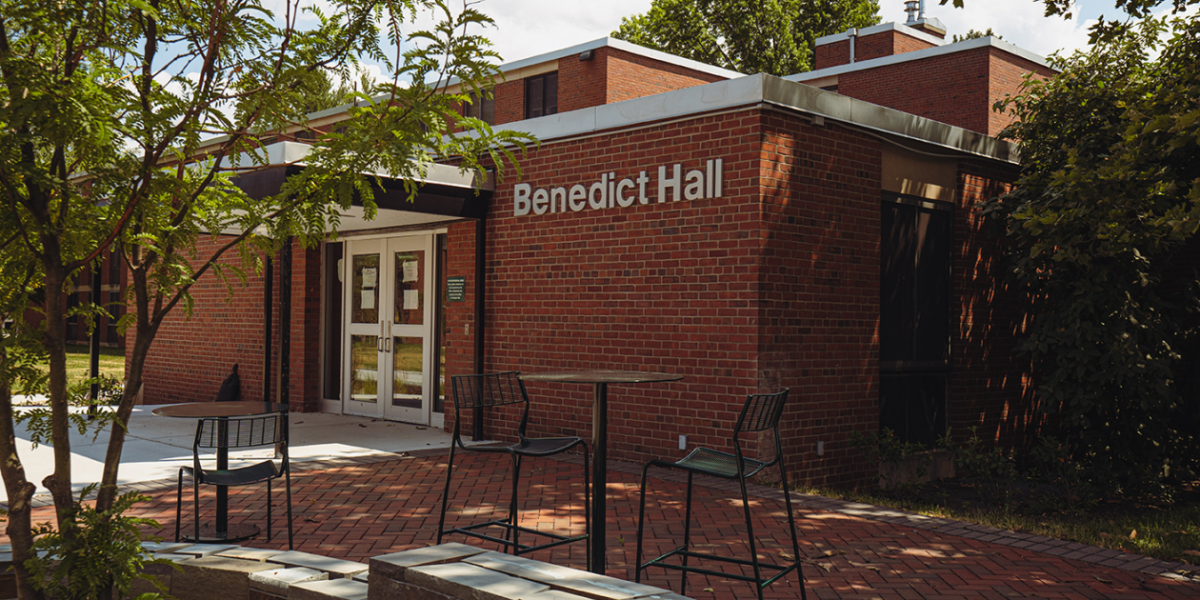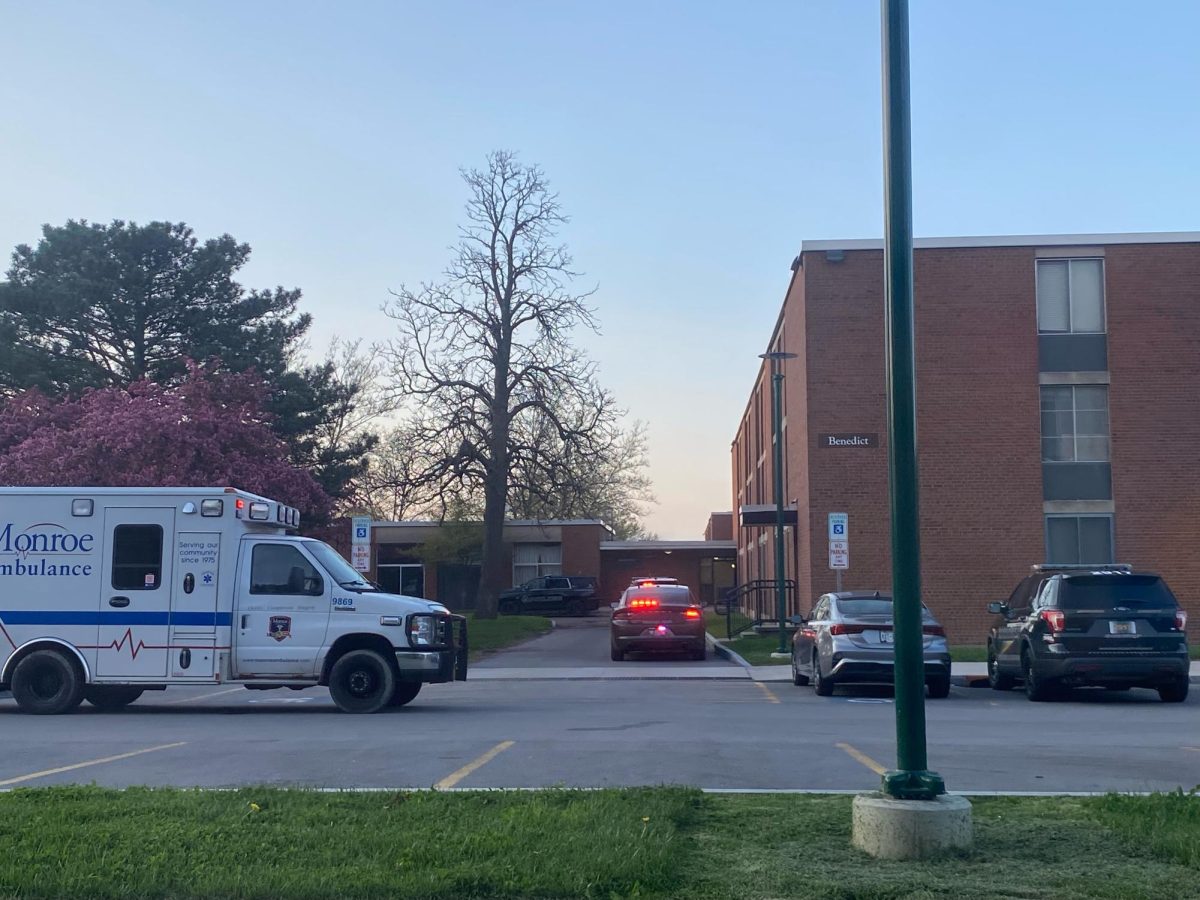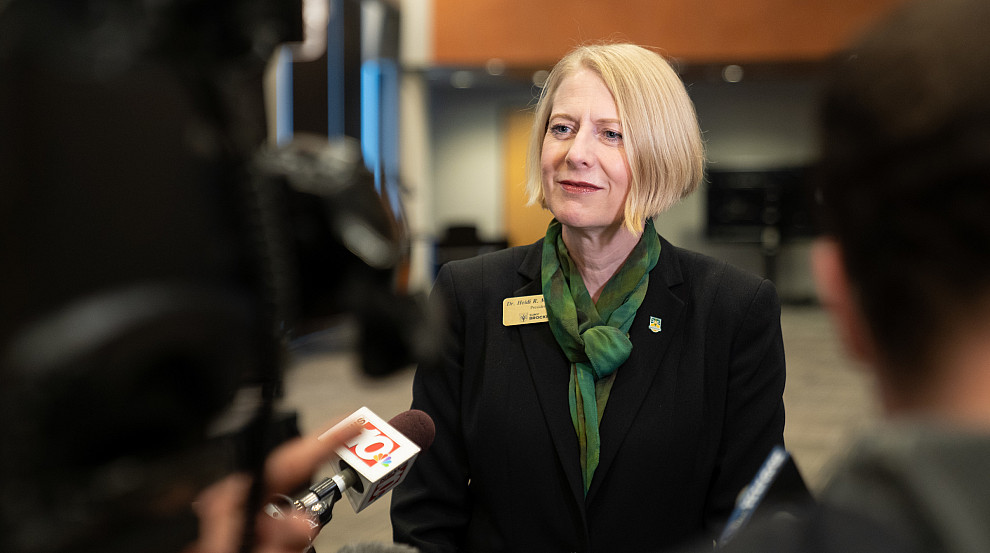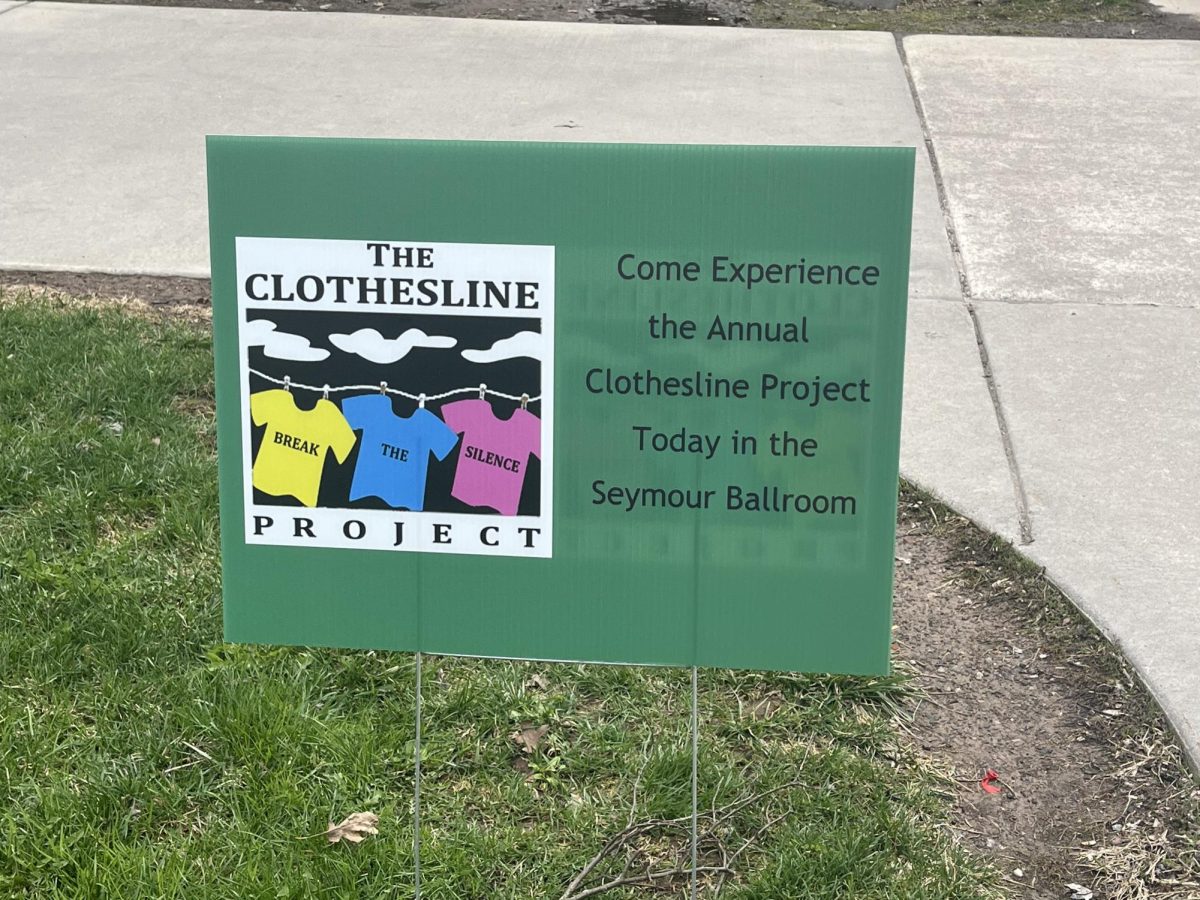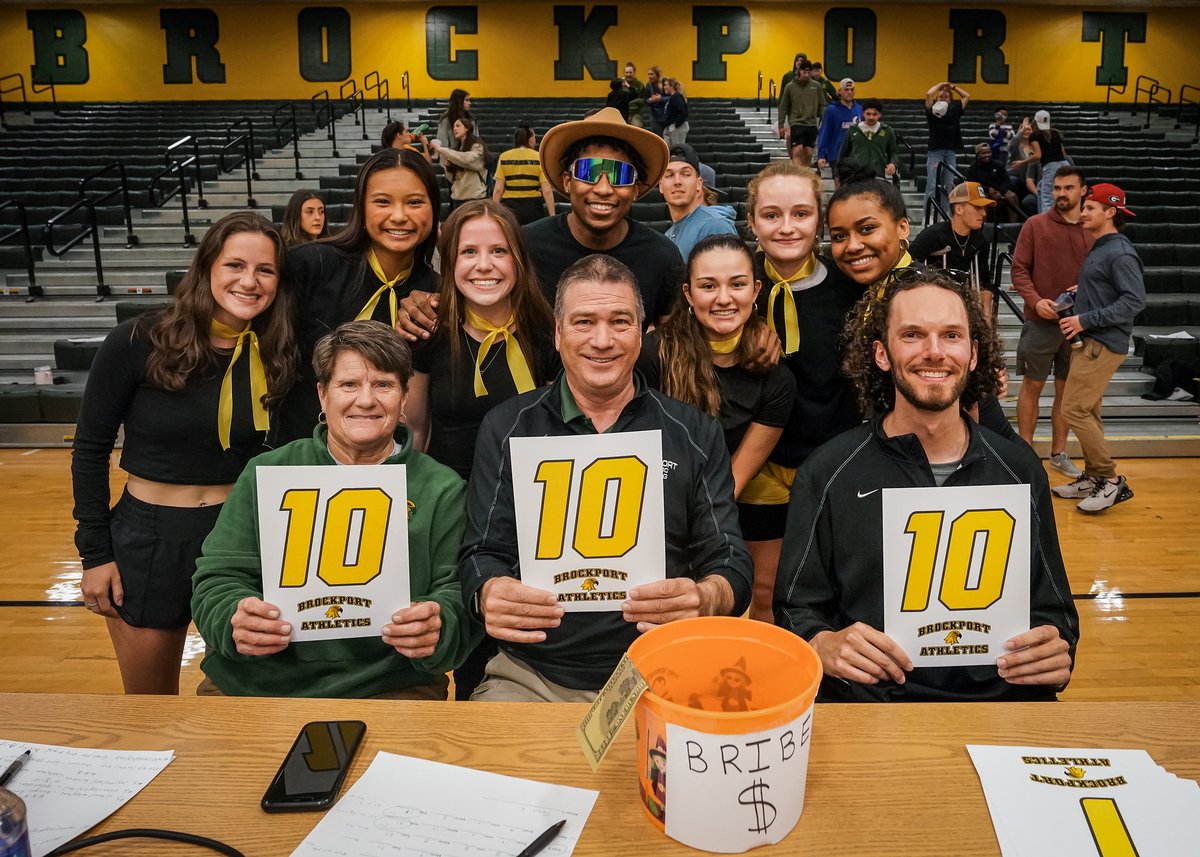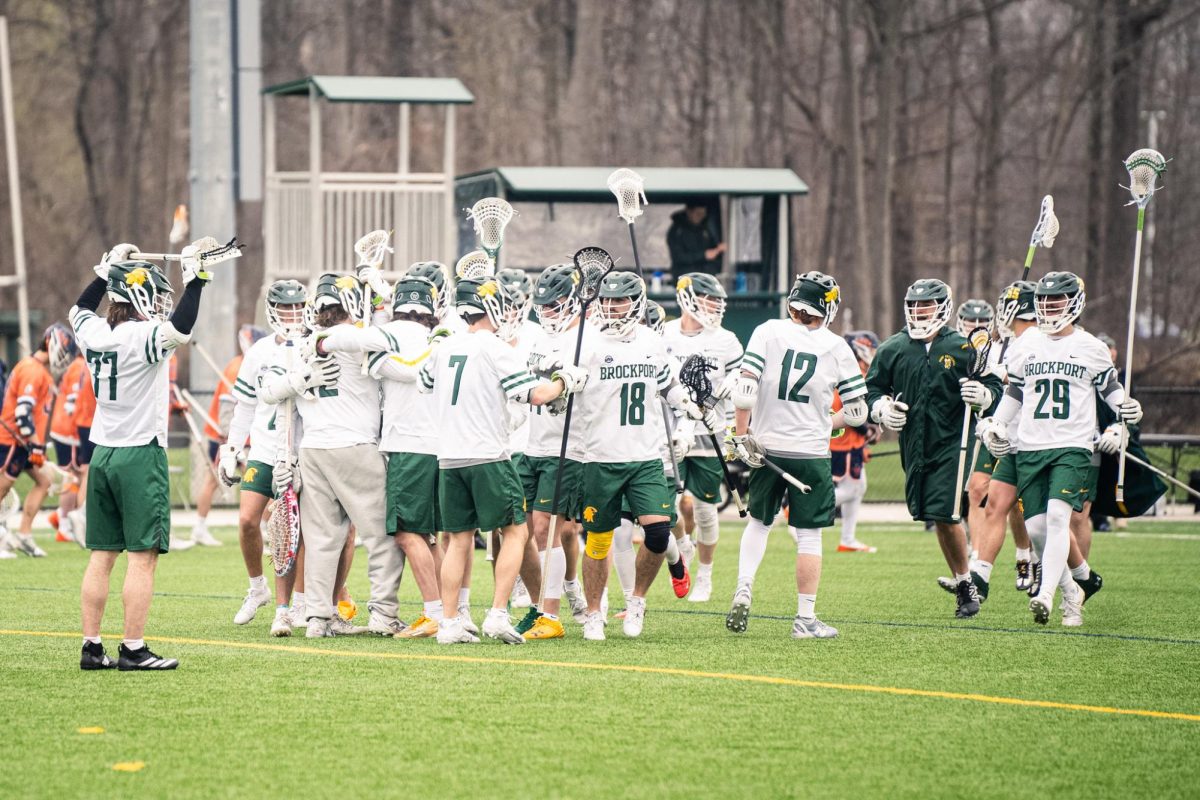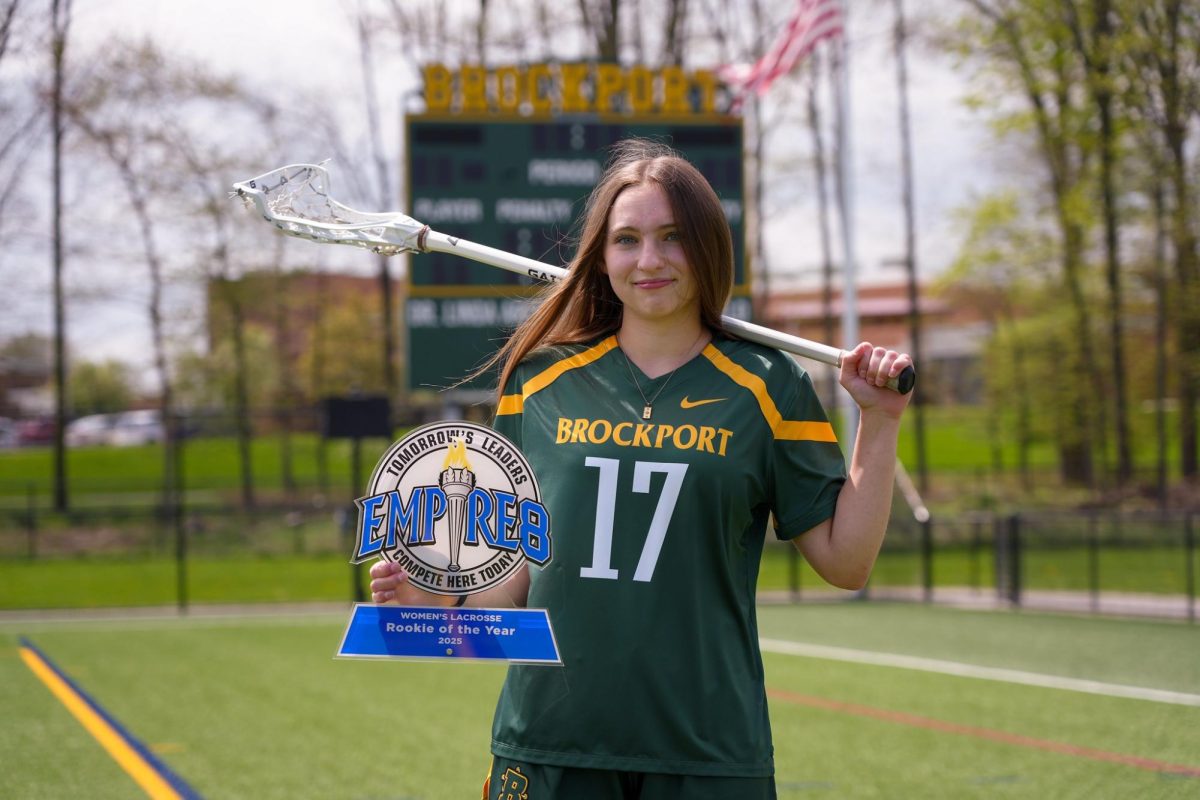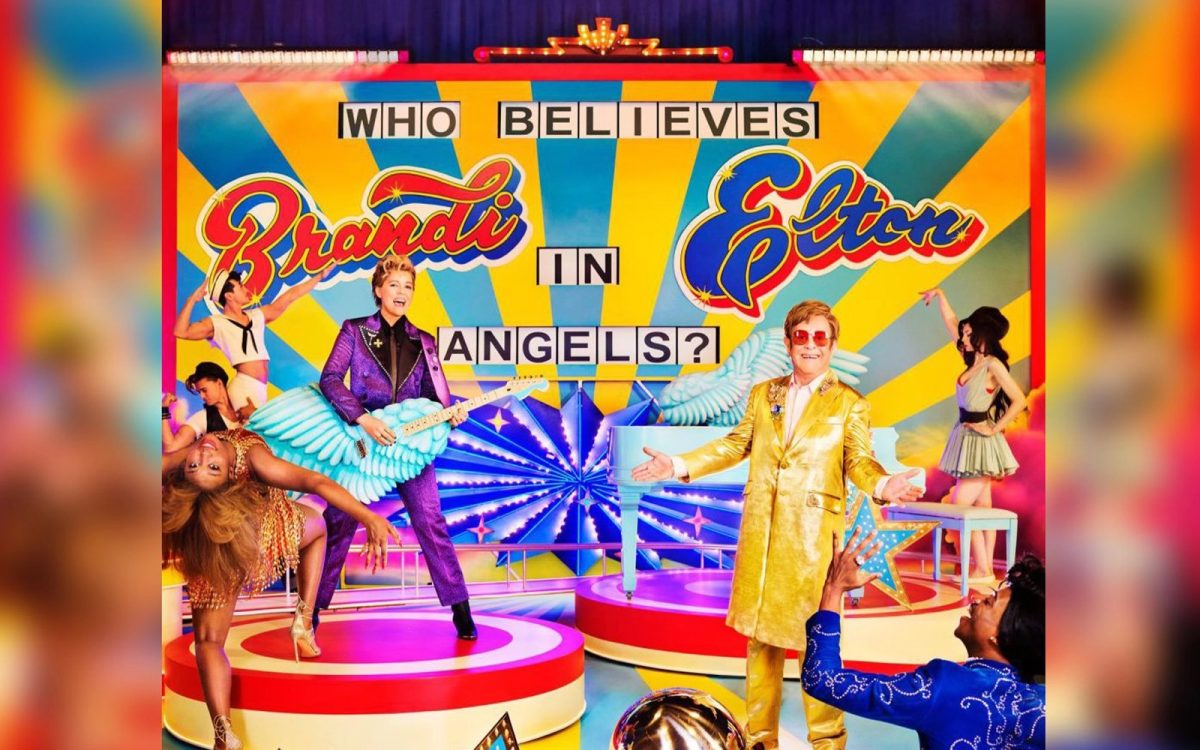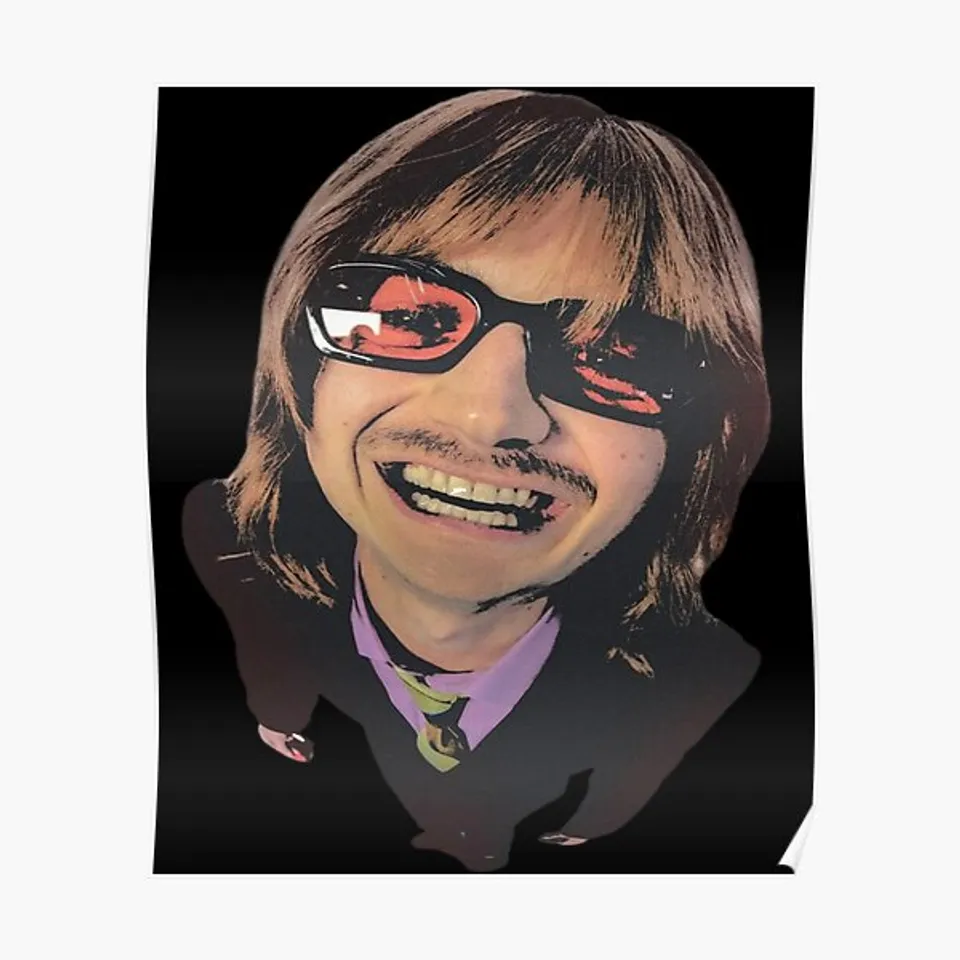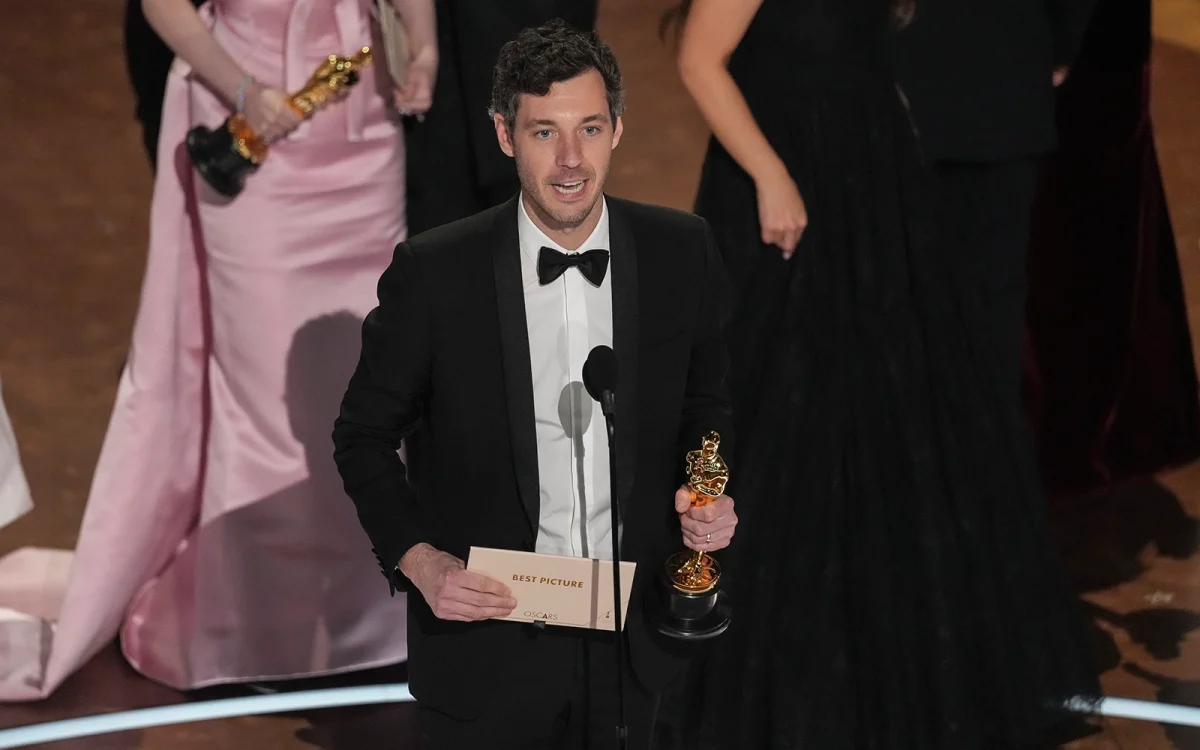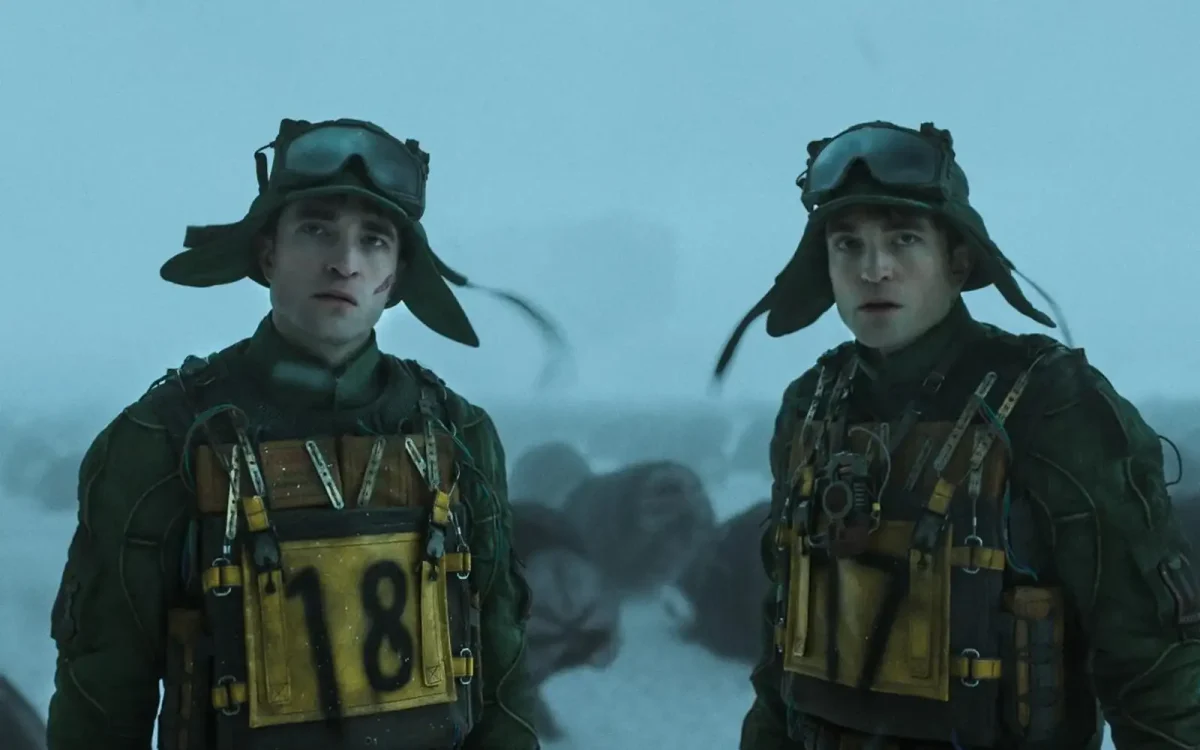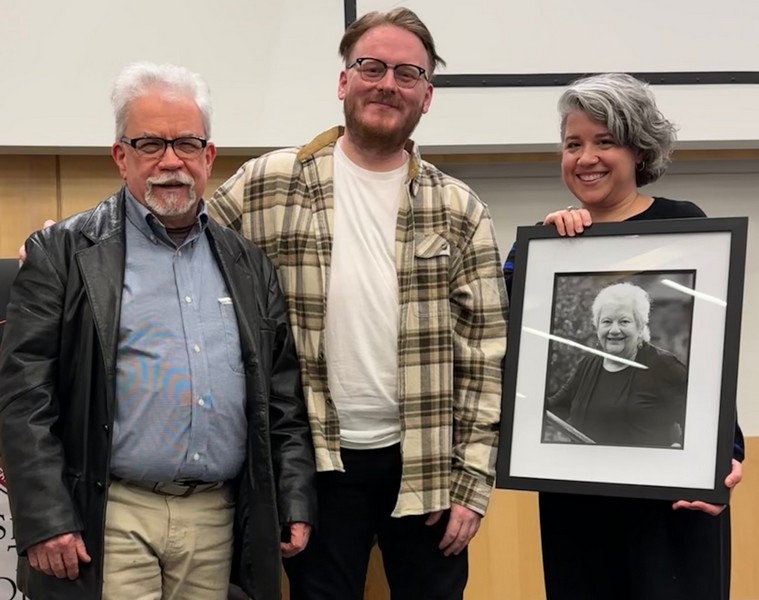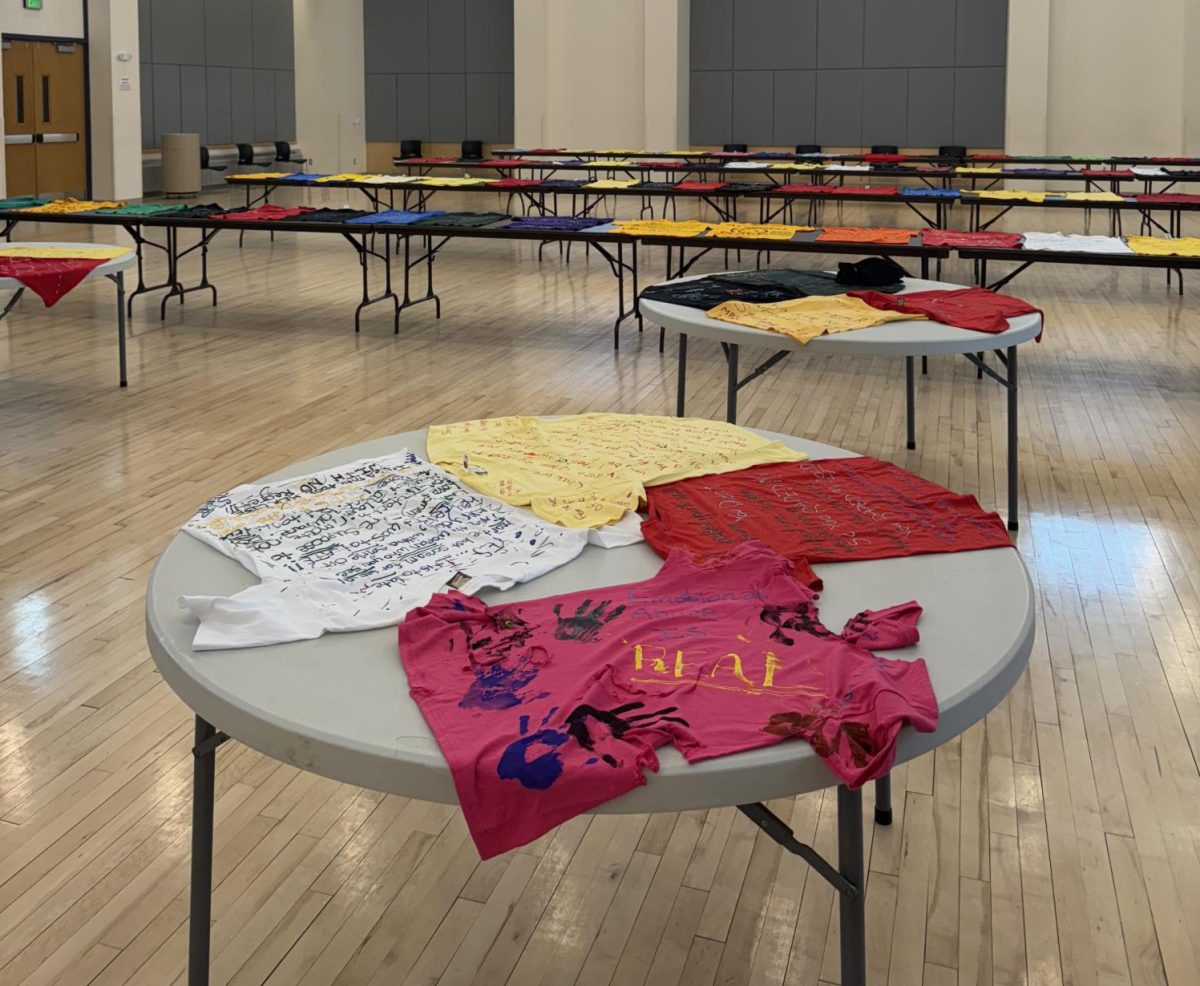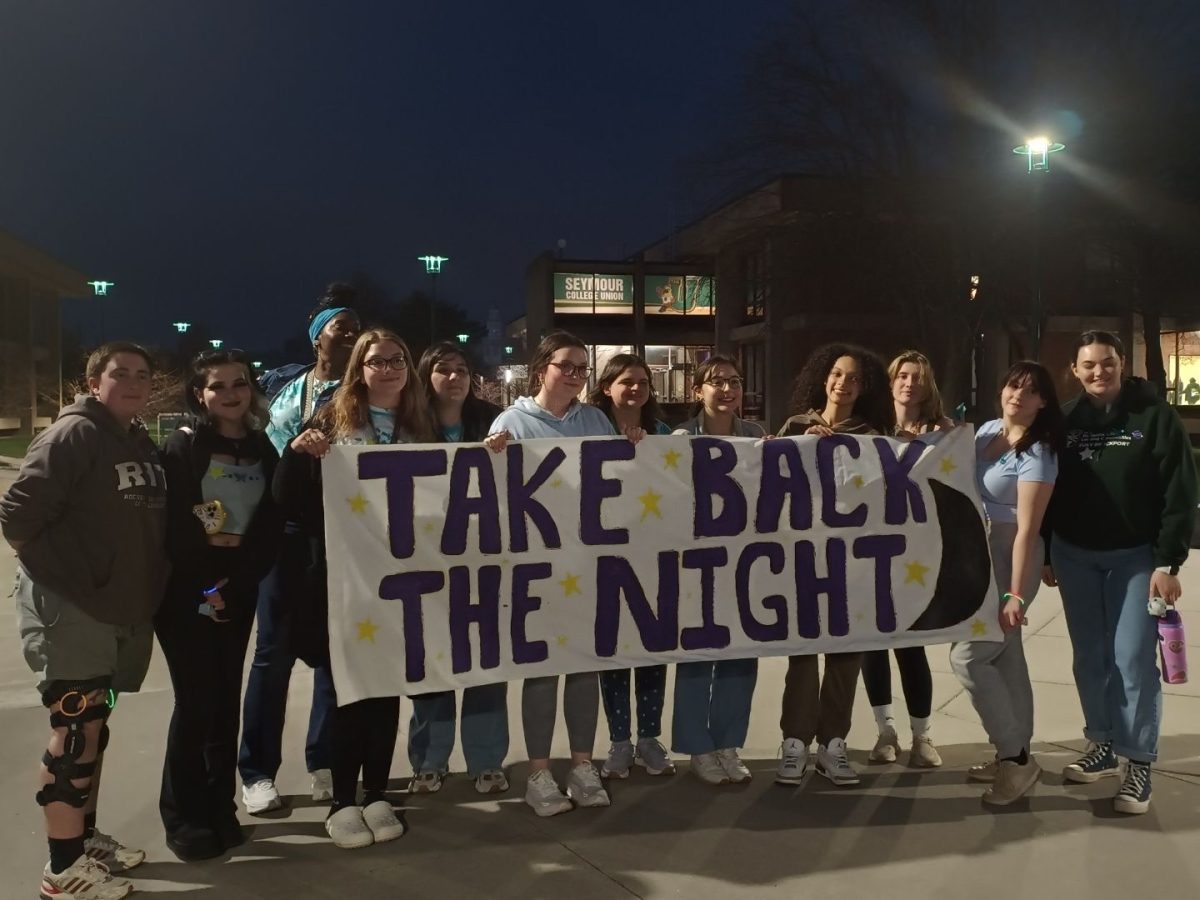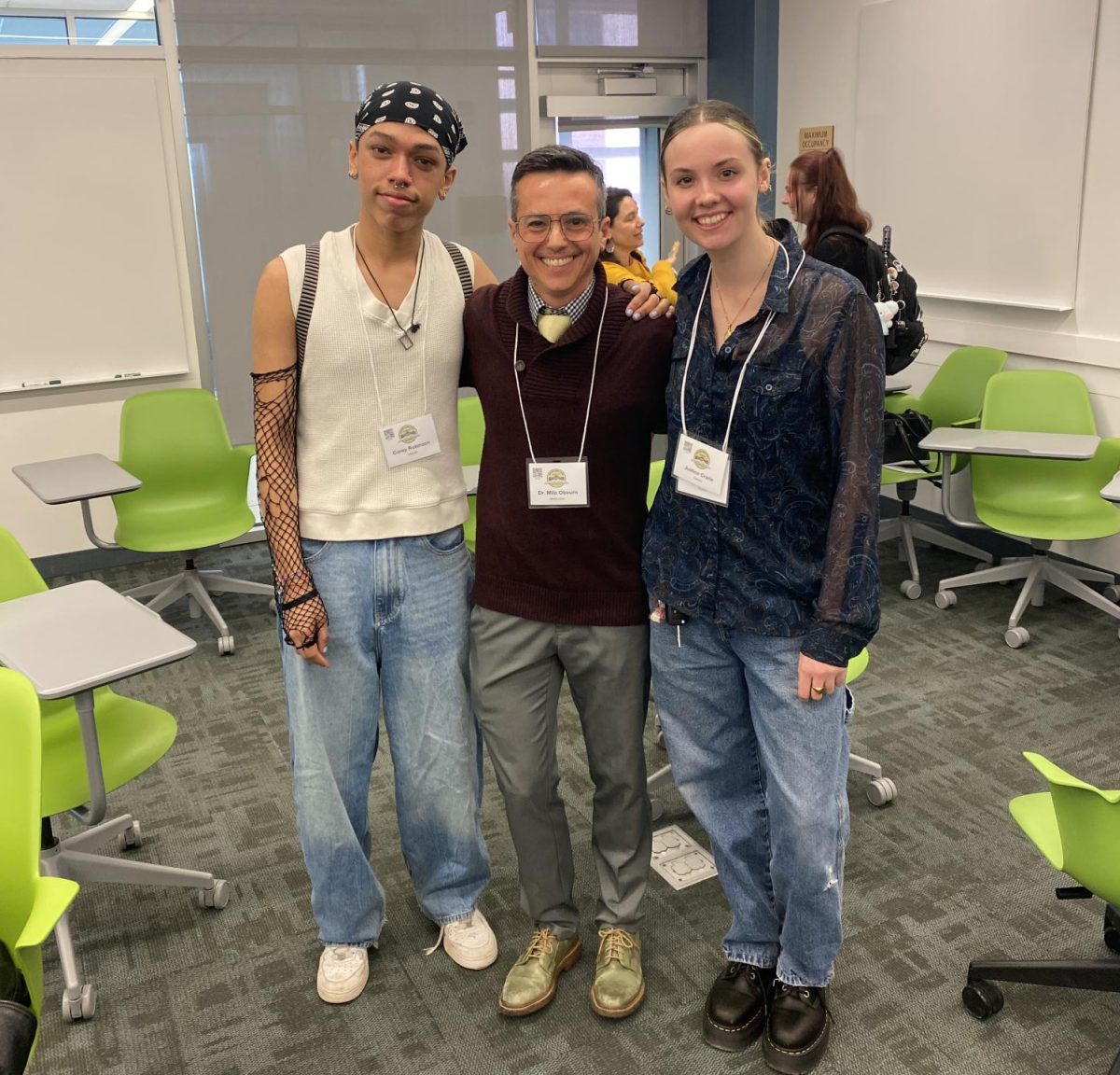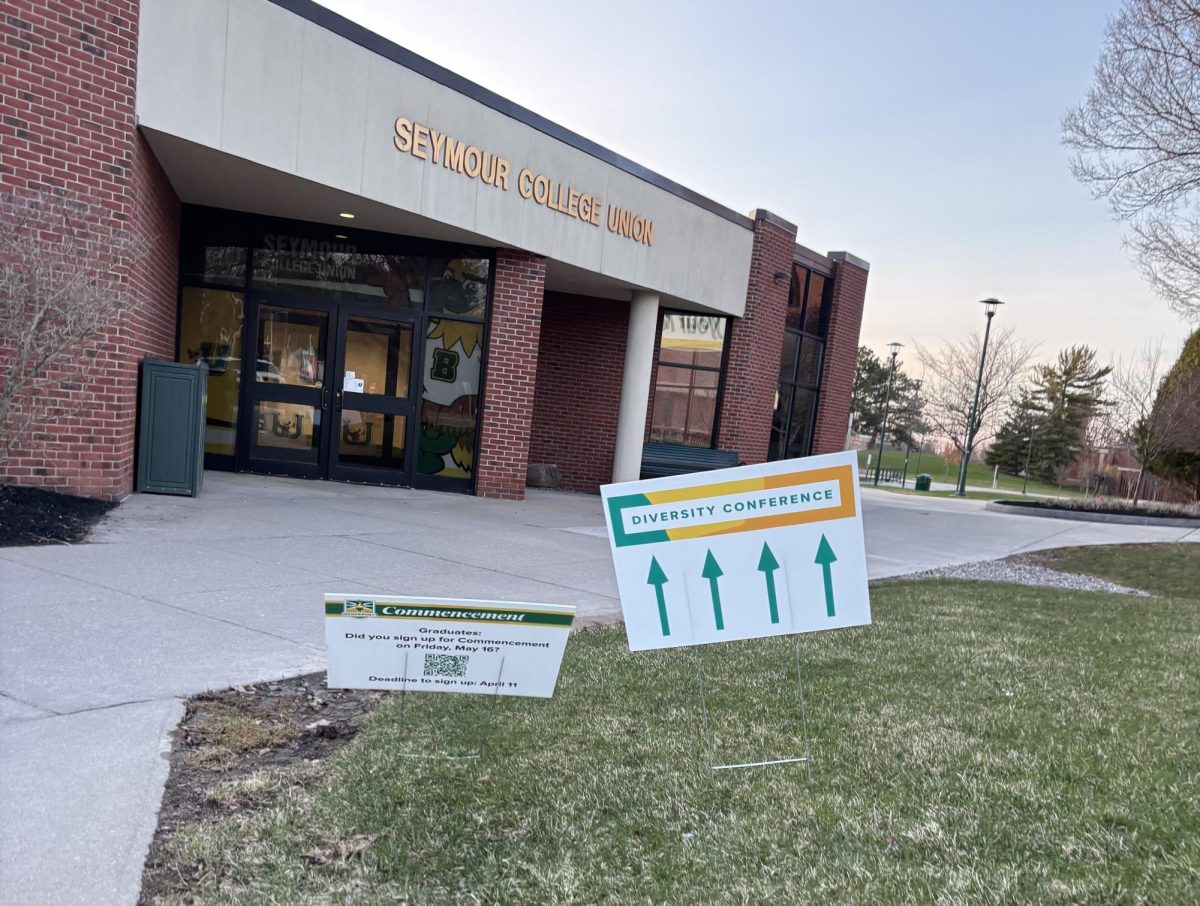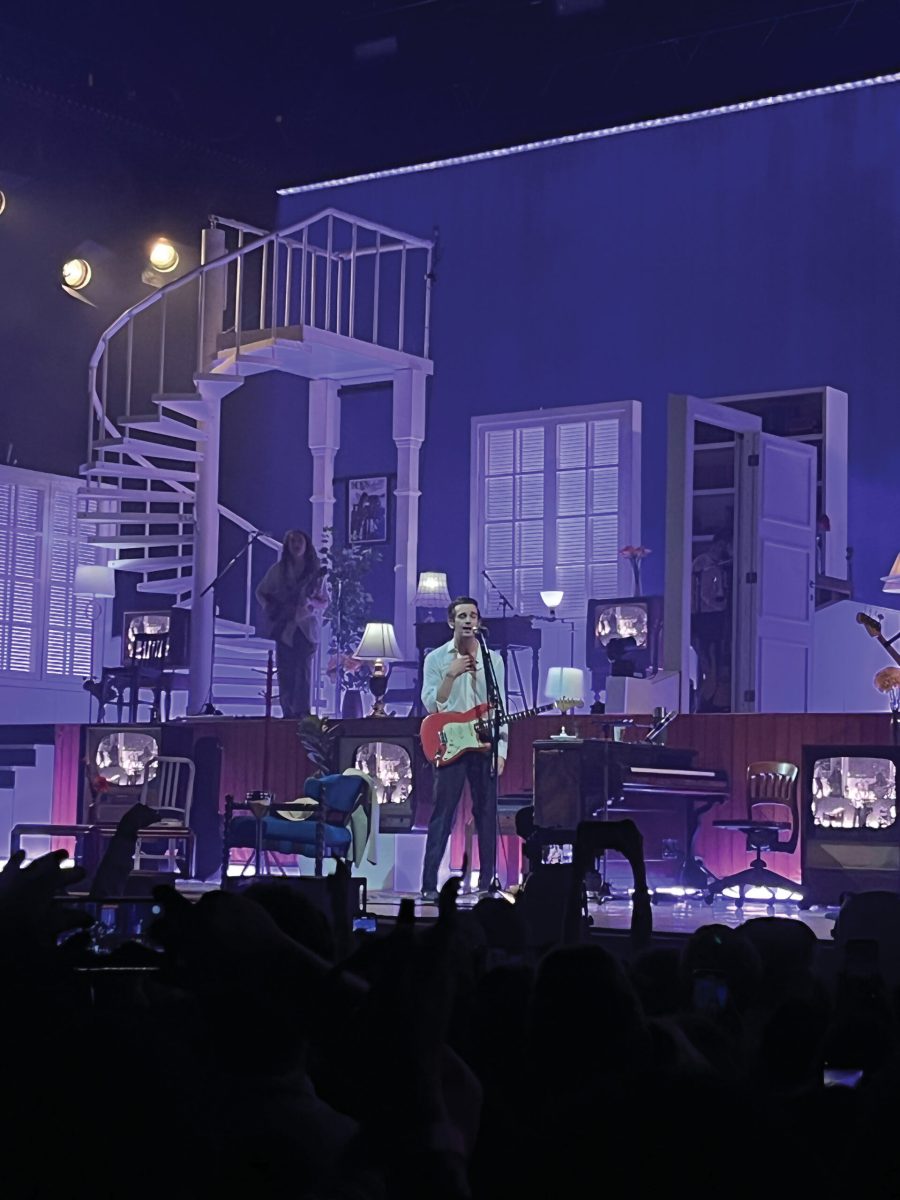By Grace DePaull / Contributing Writer and Sarah Killip / Editor-in-Chief
Between swigs from a flask and long drags from Camel cigarettes, Matty Healy greets his guests from the floor of a makeshift, fully furnished house with various rooms, doors, a spiral staircase, half a dozen lamps and too many televisions. Healy’s lyrics, “this will get bigger if you know what I mean,” are the first words to cut through the cavernous anticipation of the sold-out silence. After crawling to the keys of the piano, “I’m sorry if you’re living and you’re seventeen” echoes through the hall, inviting the crowd into his home—a microcosm of the 11 tracks from The 1975’s newest album, “Being Funny In A Foreign Language.”
The band’s fifth studio album strays from their acclaimed synth staccato melodies and trades some of their “funk” for sincerity. “Being Funny In A Foreign Language” addresses the rawness of human experience through empathy, addiction, feeling and depth. Healy’s lyrics remain playful, bizarre and brilliant, seamlessly inserting “I know some Vaccinista tote bag chic baristas sittin’ east on their communista keisters” into “Part Of The Band,” their first single off the album.
Healy ditches his tan sport coat and grabs an acoustic guitar to perform “I’m In Love With You,” which is currently The 1975’s most streamed song from their newest release. The crowd belts back Healy’s catchy chorus, “I’m in love with you, I-I-I-I-” which upholds the band’s commitment to honesty as Healy stumbles over his words, not shying away from his difficulty in showing emotion. In just four minutes and twenty-two seconds, Healy stutters through ninety-nine “I”s while attempting to express his infatuation. His vulnerability dissolves some of the invincibility that the disheveled yet chic, perfectly wrinkled white button-down donned British frontman exudes. “I’m In Love With You” is a perpetual confession of love—repeated so much so that it makes us believe that perhaps Healy is making up for what was never said before.
As synths, drums and a catchy melody come to an end, the light and bouncy sound no longer counterbalances Healy’s behaviors, which are becoming increasingly disturbing. Parading around the stage with a sleek flask in hand and lighting a string of cigarettes, Healy enters a gradual stumbling stupor, succumbing to an altered state. The setlist slows as songs like “fallingforyou” and “I Like America & America Likes Me” are resurrected from past albums and sung from new heights as Healy scales the roof of his house.
While puffing on his third cigarette of the night, Healy thrusts his head out the set window pleading, “Do you think I have forgotten about you?” which is a haunting confession that escapes from the lyricism of “About You,” a track that yearns for a love left behind. A looming external presence begins to infiltrate the walls of the house, charged by addiction and loneliness despite being on display for 5,000 of his guests. Healy seems to be under the influence of excess society, media, technology and substances while attempting to resist through lyrics of love and longing, heartbreak and loss.
With deep sadness in his eyes, Healy requests applause for each of his bandmates before they exit the house. Ross MacDonald, the band’s bassist, is the last to walk through the door, tugging the strings of each lamp until all lights are extinguished. Healy is left alone, sinking into the sofa to sing “Be My Mistake.”
While this theatrical rendition of the album can be applauded for its ingenuity, we appreciated when it finally ended with Healy being swallowed through one of the many television screens. The first part of the show proved to be a bit worrisome—tempting us to question whether Healy was mentally and physically sound. When an oxygen tank was wheeled to the side of the sofa, we feared that his lungs only held enough air for half a concert. However, this strangeness was only satire, directing attention to the album’s underlying themes.
“Being Funny In A Foreign Language” was born from the difficulty to master humor in another language. It takes commitment to failure, understanding that making another laugh depends on one’s own vulnerability to navigate the nuances of a new language. For The 1975, it takes putting on a play to emulate this honesty, and for that, we admire their efforts.
Part two of the concert, however, resumes with a newly revived (or perhaps never really intoxicated) Healy. The familiar ‘80s-inspired groovy funk pop guitar accompanies a smiling Healy who bops around the stage surprising the crowd with older tracks like “If You’re Too Shy (Let Me Know),” “TOOTIMETOOTIMETOOTIME” and “Paris,”—straying from the setlist to perhaps appease the girl in the front row who held an “I <3 Paris” sign that occasionally obstructed our view (shout out to Matty Healy for fulfilling her song request so that she finally put her arms down).
For the rest of the night, The 1975 reverts to their roots as new energy rises to the rafters, and Healy gets the crowd jumping in sync to “The Sound.” While this was my (Grace’s) first time seeing the band live, it suddenly feels familiar with Healy claiming this second segment of the show to be a “normal 1975 gig.” My favorite track from their debut album, “Robbers,” is everything I hoped it would be—smoke swirls in a hazy white beam of light cast on Healy while the crowd shatters the silence to scream, “Now everybody’s dead.”
At half past ten, on the outskirts of Boston, Matty Healy shuts down the electrical buzz of the stage lights for the final time, shooting the crowd one last cheeky grin. Healy, MacDonald, Adam Hann and George Daniel are just having fun alongside their very best friends—all at their very best.




